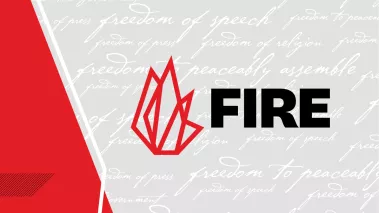Table of Contents
Michigan State University Demands That Personal Opinions Stay Off Campus E-mail

After FIRE notified Michigan State University (MSU) President Lou Anna K. Simon that MSU remains on FIRE's Red Alert list because of its extremely restrictive new "spam" policy, President Simon responded by defending the policy. "The University's email services are not intended as a public forum for the expression and dissemination of personal opinions," Simon wrote in her response. "Rather, other means exist within the University community for the expression and dissemination of personal opinions."
MSU used a similar policy last academic year to find a student government member guilty of "spamming" after she e-mailed a number of professors about controversial changes to MSU's academic calendar.
Within two days of her e-mails, MSU Network Administrator Randall J. Hall summoned the student, Kara Spencer, to a mandatory "investigation" meeting. Hall alleged that she had violated as many as five MSU policies by "spamming" the faculty members. Despite the fact that her e-mail was timely, carefully targeted, and concerned a campus issue, she was found guilty of violating MSU's "spam" policy.
In response, thirteen civil liberties organizations, led by FIRE and the Electronic Frontier Foundation (EFF), wrote an open letter to Simon, challenging both the policy and its application against Spencer. In response to the letter, public pressure, and an appeal filed by Spencer, the University announced that the charges had been "withdrawn."
But MSU then made its unconstitutional e-mail usage policy even worse, essentially taking away the forum for personal opinions that every MSU student (and a very high percentage of college students in America) expects and is used to regarding campus e-mail. If you try to cold-contact as few as 11 people over two days to alert them to a campus issue, you can be found guilty of "spamming" at MSU.
There is no comparable policy, I believe, about cold-calling people, which is much more annoying than an easily discarded e-mail. Besides, this line from the Supreme Court in Consolidated Edison Co. v. Public Svc. Comm'n, 447 U.S. 530, 542 (1980), is worth remembering: "The customer of Consolidated Edison may escape exposure to objectionable material simply by transferring the bill insert from envelope to wastebasket." The burden on the recipient of unwanted e-mails is far less than for the recipients of unwanted snail mail considered in that case.
MSU's policy is impossible to enforce fairly in practice and is likely to lead to another unjust prosecution.
Recent Articles
FIRE’s award-winning Newsdesk covers the free speech news you need to stay informed.

The FCC's show trial against CBS is a political power play

UPDATE: Another federal appeals court backs academic free speech for public employees

Feds to Columbia: ‘You want $400 million in contracts back? Do this (or else)’
